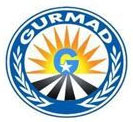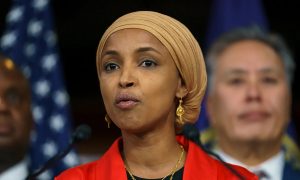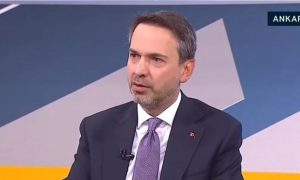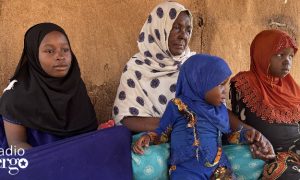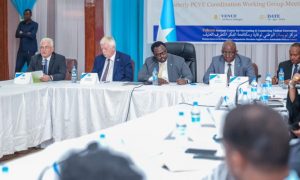
Gurmad Presents
Continuing the Path of
Institutionalization vs. Return to the Era
of Foreign-made Roadmaps
A Political Agenda For 2016
Continuing the Path of Institutionalization vs. Return to the Era of Foreign-made Roadmaps
>
Background
The legal term and mandates of Somalia’s parliament, constitution and presidency is ending in less than a year. There is a total ambiguity over the fate of the current parliament, the presidential elections scheduled for August 2016 and the Provisional Constitution itself. This is largely the result of an almost criminal negligence of duty and utter failure of the Somali political leadership, both executive and legislative, to meet constitutionally mandated benchmarks.
The missed targets include the failure to establish a constitutional court and the laws necessary for the organizations of the judiciary, the review of the provisional constitution, the timely establishment of key independent federal commissions. Specter of renewed constitutional crisis and political rancor is looming throughout the Somali political landscape.
On the current conveyor belt, political vacuum is imminent. The lack of clear legal process to facilitate the 2016 political transition has created fundamental uncertainties about Somalia’s political system and the constitutional legitimacy of every political institution of the state.
Meanwhile, frustrated by the ineptness of the political class, the Somali citizens, by and large, have developed certain level of cynicism or very low expectation for any substantive reforms to emerge out of the electoral bodies and election procedures for a fair and free parliamentary election.
Against this backdrop, Gurmad engaged Somalis in Diaspora and homeland to discuss and analyze the political challenges facing Somalia in order to find a Somali-owned alternative for 2016 political transition.
After careful assessment of the prevailing political conditions, and having listened to the voices of Somalis across the spectrum, Gurmad made the following findings:
- Due to lack of proper electoral bodies and procedures necessary for holding parliamentary elections, Gurmad sees no ethical, legal or political justification for any form of elections; for such endeavor would be nothing more than further derailment of the already frail Somali political system, not to mention waste of resources. In other words, Gurmad sees no rational argument in engaging in an exercise whereby potentially millions of dollars of Somali or donor countries’ funds are wasted to essentially re-select another 275 members, many of whom are likely to be the sitting members themselves, based on the discriminatory 4.5 formula to the parliament.
- Those who float a return to roadmap and the selection of new MPS based on 4.5 are perpetuating the influence of foreigner to determine the future of Somalia. Gurmad operates on the self-evident premise that outsourcing of Somalia’s political process to foreign entities only prolongs the problems. For over a decade, various processes or power-sharing initiatives were introduced by (now defunct) UNPOS, UNSOM or IGAD. Each initiative has only added a new layer of complexity to the Somali political conundrum. Therefore, and especially in this defining moment of state recovery, Gurmad finds it objectionable to allow the 2016 political process to become a foreign project.
Alternatively, Gurmad proposes the following Steps that are grounded on the legitimacy of the one Somali institution, which despite our profound disappointment with its performance, has the broadest representation of the Somali people –the federal parliament,
Step One (September 2015-December 2015)
Before December 31, 2015, the Federal Parliament must pass legislations establishing the following:
- The Constitutional Court
Somalia and the people of Somalia deserve to have a court of law that interprets the Constitution. The need for this court was on vivid display these past few weeks as crystallized by the mind-bogglingly incoherent response and basic inability of the parliamentary leadership to deal with or follow any form of procedure to address the competing motions to impeach and not to impeach the president. The constant disputes between the federal government and the so-called regional administration on power and legitimacy is also another reminder for the need to have this court as the ultimate and competent adjudicatory authority on constitutional matters.
Failure to establish this court in a timely fashion would not only constitute a blatant violation of the provisional constitution, it would perpetuate the lack of institutionalization of the Somali political system and would allow foreign actors to manage the Somali political affairs through the so-called “negotiated” measures rather than established legal processes.
- Multiparty Political System
Gurmad sees political parties as an effective tool to eliminate the unequivocally discriminatory 4.5 power-sharing formula and move toward a political systems based on citizenship, free-will and consent of the individual citizen. The parties can also be embodiment of shared principles, goals, and policy positions among Somali citizens away from association along tribal lines. Moreover, and in order to prevent the proliferation of clan-based political parties, Gurmad proposes limiting the number to three major national parties for the interim 2016 period.
Furthermore, and in order to ensure broad appeal and representation, the legislation must clearly state that the composition of the central governing committee of each party must reflect the geographical diversity and communal composition of the Somali society. In this regard, we encourage the parliament to refer back to the 1960s Somali electoral process by requiring the submission of petitions or signatures of five hundred citizens from diverse backgrounds and localities as part of party registration requirement. Finally, Gurmad stands ready to assist the parliament in drafting a comprehensive legislation that establishes political parties.
- Anti-corruption Commission
Gurmad recognizes the universal truth that corruption does not only allow some to immorally, and indeed criminally, abuse resources, it corrodes trust between citizens, and ultimately destroys the state. In light of the pending allegations of wide-spread public corruption that compromised the natural resources of our nation, the parliament must pass legislation establishing this commission and pave the way for the appointment of individuals with track record of integrity and expertise to run this crucial national commission.
- Truth and Reconciliation Commission
Gurmad recognizes the critical importance of establishing an independent reconciliation commission made of Somali peace-makers with significant number of women from all sectors of the society and clans. Throughout history, no nation has undergone a quarter of a century of bloodshed and healed without reconciling their differences. The parliament must grant this commission clear legal mandate, including the recommendation for prosecution and for immunity.
Step Two (January 2016)
Once the parliament establishes the above institutions by December 31, 2015, and in order to observe the legislative tradition of avoiding major enactments within six months preceding an election, the parliament should, by January 31, 2016, pass an Interim Electoral Process law for 2016.The legislation must provide for election cycles as following:
- The parliamentary elections shall be extended from August 2016 to August 2018;
- An election of a new leadership of the parliament shall be held on August 2016. The campaign for the parliamentary leadership positions within the parliament shall be based on party platform with the three major parties competing and endorsing candidates for such positions;
- Upon election of the new Parliamentary leadership, the three parties shall immediately field candidates for office of the President. The presidential election shall be based on party platform in the parliament with the three major parties competing and endorsing candidates for such positions. A new president must be elected by no later than September 15, 2016.
Gurmad notes that its support of any extension of the term of the parliament is predicated and conditioned upon the complete and timely fulfillment of the conditions enumerated in Step One. Gurmad is confident that there are reasonable legal arguments to be made in favor of an extension. However, it notes that the legality for the extension of the term of office of the current members of the parliament (and not its leadership) as well as the status of the Provisional Constitution beyond August 2016 may ultimately require proper interpretation by the Constitutional Court or even a constitutional amendment or suspension of some clauses thereof.
Gurmad starkly notes that the election of members of parliament or the president is inherently a federal matter and its administration falls primarily within the responsibility of the federal institutions. Any role by a duly created Federal Member State in such elections must be confined only to areas enumerated in the Constitution. Moreover, existing interim regional administrations should, with the assistance of the Ministry of the Interior of the Federal Government, primarily focus their energy on establishing local administrations and spreading self-governance at the local and municipal level. Building strong local and municipal government would enhance the chances of becoming a successful Federal Member State.
Step Three (2016-2017)
Upon successful completion of Steps One & Two, the new president shall call for a Constitutional Convention during the period between September 2016 and December 2016, with the participation of the Review and Implementation commission, relevant parliamentary committees, regional administrations and national civic organizations. The main purpose of the convention will be to:
- Revisit the Basic Principles of the Provisional Constitution including the nature of the Somali Federalism and system of government including whether to adopt parliamentary system or presidential system;
- Give the Somali people the chance to develop modalities for a new Social Contract that builds on the achievements made thus far.
A Word on the Foreign Role
While Gurmad appreciates the positive role that the AMISOM troops have played in weakening Al-Shabaab in mostly urban centers in Somalia, it is outraged by the reported widespread human rights violations including rapes and killings of innocent civilians by AMISOM. Gurmad further notes that, it is a blatant violation of the UN Security Council Resolution 2093 (2013), troops from front-line states are particularly notorious for targeting Somali villages with illegal aerial bombardments Therefore, in order to safeguard Somalia’s sovereignty and protect the dignity of the Somali people, the Federal Parliament must:
- Pass legislation to regulate the nature and operational modalities of AMISOM forces and other foreign actors in Somalia;
- Support, through legislation and funding, an inclusive and powerful Somali National Army; and
- Develop an exit strategy with timelines for the AMISOM peacekeeping forces.
_____________________________________________________________________________________
Xafiiska Wararka Qaranimo Online | Mogadishu, Somalia
_____________________________________________________________________________________Advertisement
_____________________________________________________________________________________


